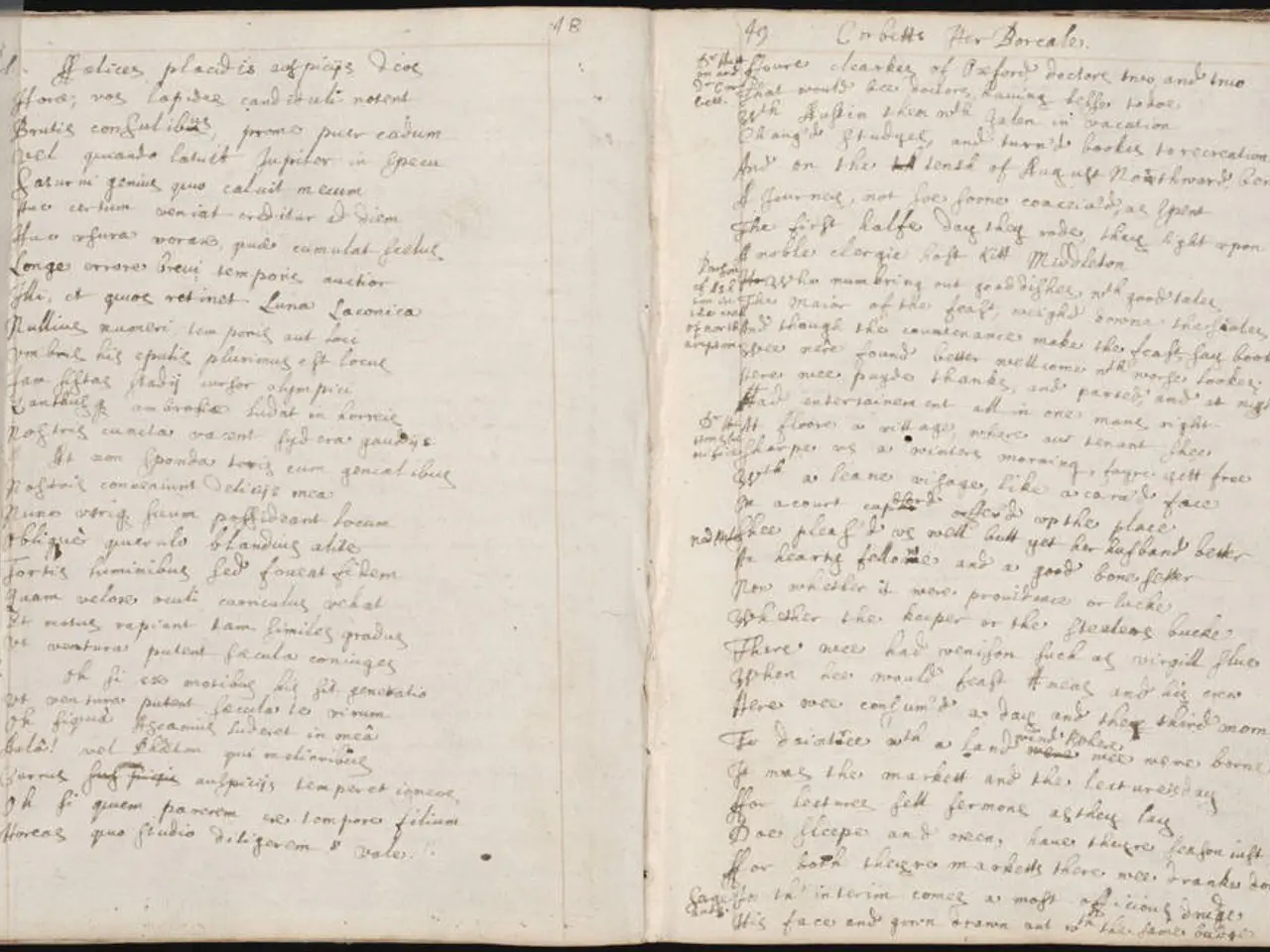Persistence of Bushnaq's influence through exile, art, and resistance in Palestine
The Resilient Legacy of the Bushnaq Family: A Century of Palestinian Cultural and Political History
The Bushnaq family, of Bosnian Muslim descent, have left an indelible mark on Palestinian history. Originally settling in the coastal village of Qisarya (Caesarea) near Haifa before 1948, they have been prominent figures in Palestinian journalism and resistance for nearly a century.
Mohammed Bushnaq, a descendant of the family, made history as Palestine's first radio journalist in the 1930s. His radio program, "Huna al-Quds" ("This is Jerusalem"), broadcasted the sounds and stories of Palestine, giving voice to Palestinian identity and resistance at a critical historical moment. This tradition of journalism and activism continued in the family, symbolizing a commitment to telling the Palestinian story despite displacement and oppression.
Qisarya, once the heart of the Bushnaq community, was built on the ruins of an ancient Roman city. Until 1948, it was the family's home. Although the area has since undergone dramatic geopolitical changes and is now near the home of Israeli Prime Minister Benjamin Netanyahu, physical traces of the Bushnaq legacy remain. The mosque, though no longer a place of worship, still stands today.
The Bushnaq family's story embodies a broader narrative of migration, exile, and resilience. They navigated both their Bosnian Muslim heritage and the struggles of Palestinian dispossession. The Nakba scattered many Palestinian Bushnaqs yet again, to countries such as Jordan, Lebanon, Kuwait, and beyond.
In 1959, Ali Bushnaq was among the founders of the Popular Front for the Liberation of Palestine. Today, cultural work carries the memories of the displaced into new generations. Mohammed Bushnaq, the painter and sculptor, became a cultural force in Kuwait through his Open Atelier foundation.
The past is never gone for the Bushnaqs of Palestine; it is a map, pointing them toward a future where history is neither denied nor forgotten. The same spirit of defiant witness lives on in today's Palestinian journalists in Gaza, who risk and too often lose their lives to ensure Palestine's story is heard.
The lessons from the Bushnaq family's story offer a reminder that wherever we are scattered, the voices we carry can still be heard, and the cultures we protect can still inspire the building of a more just world. A century after their arrival in Palestine, their story returns home in fragments - in art, in surnames, in memories. The Bushnaq family's journey reminds us that identity can survive borders, wars, and exile. These acts - whether a radio broadcast, a painting, a song, or a recipe - are threads in a tapestry of survival for the Bushnaqs of Palestine.
- The Bushnaq family, embodying a rich Bosnian Muslim heritage, have left an indelible mark on both the world of arts and culture, and Palestinian political history.
- In a century, they have been prominent figures in Palestine's lifestyle, journalism, and resistance movements.
- Mohammed Bushnaq, a descendant, made history as Palestine's first radio journalist in the 1930s, giving voice to fashion-and-beauty, food-and-drink, and other aspects of Palestinian life.
- Today, children of displaced Bushnaq families, scattered by the Nakba across countries like Jordan, Lebanon, and Kuwait, continue to carry their culture through personal-growth and education-and-self-development.
- Ali Bushnaq, another member of the family, played a pivotal role in the formation of the Popular Front for the Liberation of Palestine in 1959, showing a commitment to career-development in activism and politics.
- The resilience of the Bushnaq family, who faced displacement and oppression, can be seen in everyday acts such as keeping pets and making travels to reconnect with their roots.
- The legacy of the Bushnaq family also extends to weathering the storms in their respective geographical locations, demonstrating the adaptability and strength required for personal-growth.
- Modern-day Palestinian journalists in Gaza, risking their lives for causes like sports and freedom of speech, exemplify the defiant spirit and unwavering commitment of the Bushnaq family, providing a powerful example of survival and identity that bridges borders, wars, and exile.





